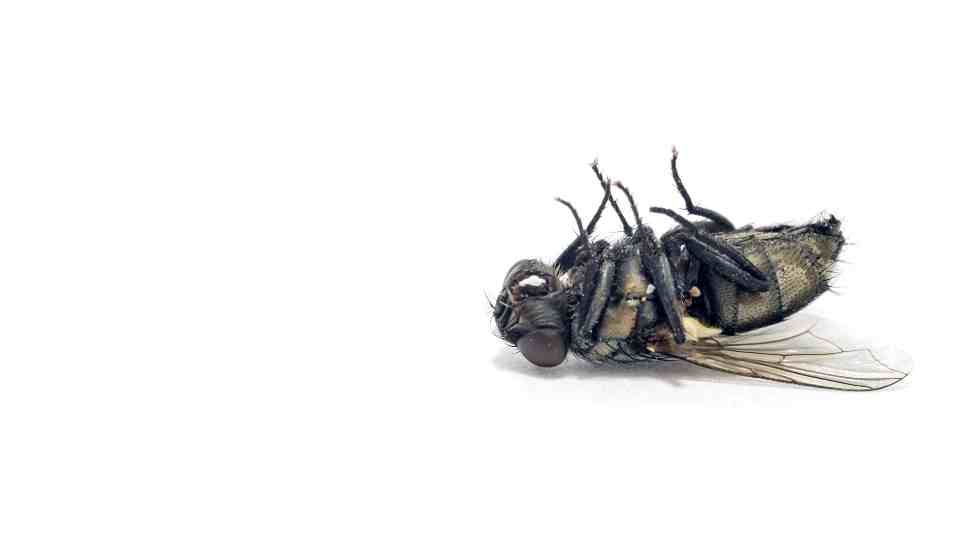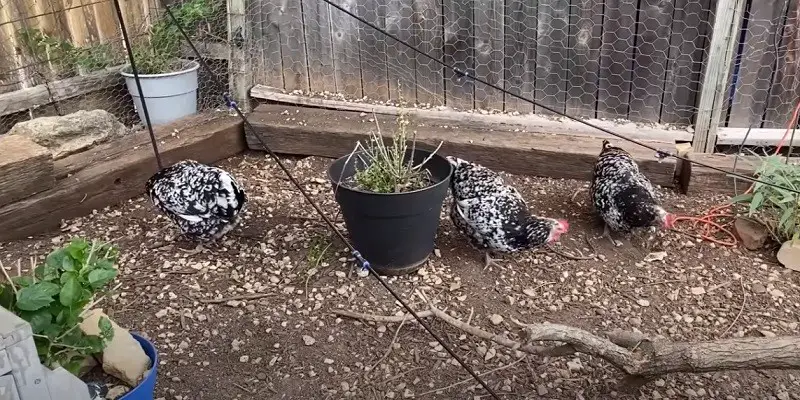To control flies in the chicken coop, keep the coop clean and dry, dispose of manure regularly, and use fly traps and natural repellents. Proper sanitation and good coop management practices are essential for controlling flies in the chicken coop.
Flies are attracted to moisture and organic matter, so keeping the coop clean and dry can help minimize fly populations. Additionally, using natural repellents such as herbs or essential oils, and installing fly traps can further control fly infestations. By maintaining cleanliness and using preventive measures, you can effectively reduce flies in the chicken coop and prevent potential health hazards for your poultry.
The Impact Of Flies In The Chicken Coop
Understanding the impact of flies in the chicken coop is crucial for the health and well-being of your poultry. Flies not only cause nuisance, but they also pose serious health risks to the chickens and can disrupt their behavior. Controlling flies in the chicken coop is essential to maintain a safe and comfortable environment for your feathered friends.
Health Risks Associated With Flies
- Spread of Diseases: Flies are potential vectors for various poultry diseases such as avian influenza, Newcastle disease, and coccidiosis, posing a significant threat to the overall health of your flock.
- Risk of Parasitic Infestation: Flies can introduce parasitic infestations like poultry mites and lice, leading to skin irritation and discomfort for the chickens.
- Decreased Egg Quality: Flies can contaminate chicken feed and water, leading to a decline in egg quality and increasing the risk of bacterial contamination.
Effects On Chicken Behavior
- Stress and Agitation: Constant exposure to flies can cause stress and agitation among chickens, affecting their laying patterns and overall well-being.
- Disrupted Feeding Behavior: Flies can interfere with the chickens’ feeding process, leading to reduced feed consumption and potential weight loss.
- Increased Aggression: Infestations of flies can trigger aggressive behavior in chickens as they attempt to ward off the nuisance insects.
Identifying The Root Causes Of Fly Infestation
Identifying the root causes of fly infestation in the chicken coop is crucial for effective control and prevention. By understanding the factors contributing to the problem, you can implement targeted solutions to keep the coop area free from flies.
Poor Coop Maintenance
Poor coop maintenance provides ideal breeding grounds for flies. When the coop is not regularly cleaned and maintained, organic matter such as feathers, droppings, and spilled feed accumulates, creating a hospitable environment for flies to lay eggs and thrive. Regular cleaning and proper ventilation are essential in preventing fly infestation. Ensure that the coop is free from moisture and organic debris to discourage fly breeding.
Waste Management Issues
Inadequate waste management can lead to a build-up of organic material that attracts flies. Improper disposal of manure, soiled bedding, and uneaten feed can contribute to this problem. Implementing a proper waste management system such as regular removal of manure, using absorbent materials in the coop to control moisture, and properly containing and disposing of waste can significantly reduce the attraction of flies to the coop area.
Implementing Effective Fly Control Measures
Flies can become a nuisance in the chicken coop, but there are several effective strategies to keep their population in check. By implementing proper fly control measures, you can create a cleaner and healthier environment for your chickens.
Maintaining Cleanliness In The Coop
Paying attention to cleanliness is crucial for controlling flies in the chicken coop. Regularly removing manure, spilled feed, and wet bedding from the coop can significantly reduce fly breeding sites. Ensure that the coop is properly ventilated to keep it dry and discourage fly infestations. Using diatomaceous earth or lime in the coop bedding can also help to repel and dehydrate flies, keeping their numbers at bay.
Strategic Use Of Natural Predators
Introducing natural predators into the chicken coop can be an effective method for controlling fly populations. Consider adding fly predators such as parasitic wasps that target fly eggs and larvae. These beneficial insects can help reduce the fly population by interrupting their life cycle. Additionally, creating a habitat for birds such as swallows or barn owls near the coop can encourage them to prey on flies, providing natural pest control.
Utilizing Safe And Sustainable Fly Repellents
Are you struggling with flies in your chicken coop? Utilize safe and sustainable fly repellents to control the pesky insects without harming your chickens or the environment. Protect your poultry with natural solutions that effectively deter flies, ensuring a healthy and comfortable environment for your feathered friends.
Natural Remedies For Fly Control
Keeping flies at bay in your chicken coop is essential for maintaining the health and well-being of your feathered friends. Utilizing natural remedies for fly control not only ensures the safety of your chickens but also promotes a sustainable and eco-friendly approach to pest management.
One of the most effective natural fly repellents is diatomaceous earth. This powdery substance works by dehydrating and killing flies and other insects on contact. Sprinkle diatomaceous earth in and around the chicken coop to create a barrier against flies.
Additionally, essential oils such as lavender, peppermint, and eucalyptus can be used to deter flies. Mix a few drops of these oils with water and spray the solution in the coop to keep flies at bay. These natural remedies are safe for chickens and the environment.
Safe Commercial Products For Chicken Coops
When natural remedies alone are not sufficient for fly control, there are safe commercial products available that can be used in the chicken coop. These products are formulated to be effective against flies while also being safe for use around livestock.
Fly traps are an excellent choice for controlling fly populations in the chicken coop. There are various types of traps available, including sticky traps and baited traps, which can help reduce the number of flies in the coop without harming the chickens.
Another safe and effective option is fly repellent sprays specifically designed for use in and around poultry areas. Look for products that are labeled as safe for use around animals and follow the instructions for application carefully.

Credit: www.dineachook.com.au
Frequently Asked Questions For How To Control Flies In The Chicken Coop?
How Do Flies Affect Chickens In The Coop?
Flies can spread diseases and stress chickens, leading to decreased egg production.
What Attracts Flies To The Chicken Coop?
Moisture, manure, and food leftovers are common attractants for flies in coops.
What Are Some Natural Ways To Control Flies?
Using essential oils, fly predators, and diatomaceous earth can help deter flies naturally.
Can I Use Chemicals To Control Flies In The Coop?
Yes, but use them sparingly and follow instructions to ensure the safety of your chickens.
How Often Should I Clean The Chicken Coop To Control Flies?
Regularly remove manure and spoiled food to minimize fly breeding sites in the coop.
Should I Use Fly Traps In The Chicken Coop?
Yes, fly traps are effective in reducing the fly population inside the chicken coop.
Conclusion
Effectively managing flies in the chicken coop is crucial for the birds’ health and well-being. By implementing these natural and practical solutions, you can maintain a clean and healthy environment for your chickens. With these tips, you can minimize fly infestations and ensure a comfortable coop for your feathered friends.
Last Updated on April 23, 2025 by Pauline G. Carter

